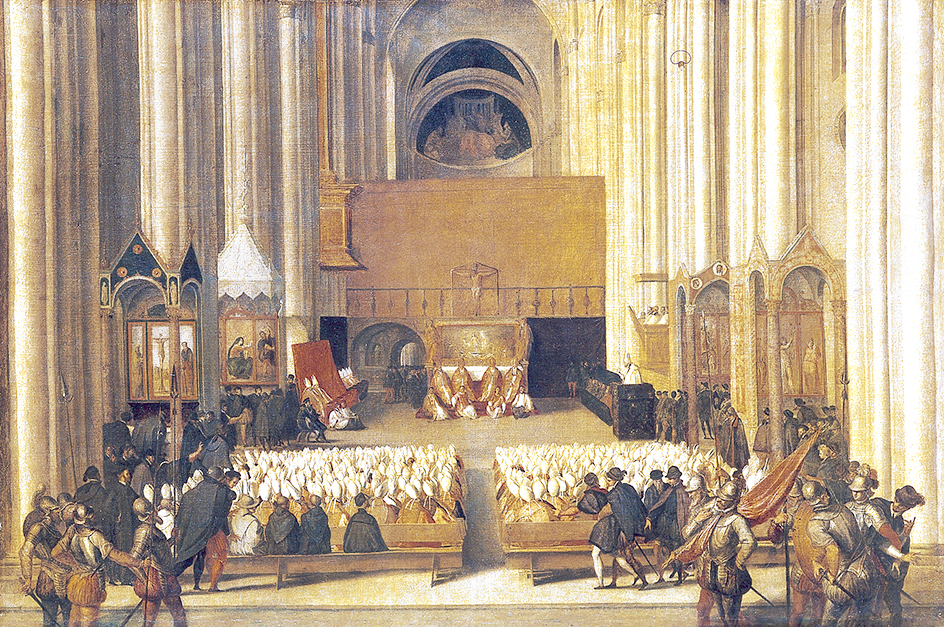Trent, Council of, was a series of conferences held by the Roman Catholic Church in Trent, Italy, from 1545 to 1563. The council defined doctrines and adopted policies that have influenced the church into the 2000’s.

The council was held in response to the Reformation, a religious movement that led to the birth of Protestantism. The council aimed to clarify Catholic teaching and to address matters of discipline within the church. Its work became a major force in the Counter Reformation, a movement that led to a renewal within Catholicism in the 1500’s and 1600’s. See Counter Reformation .
Pope Paul III summoned the council in 1542, but it did not open until Dec. 13, 1545. The council, interrupted by wars and religious disputes, met for a total of 25 sessions over three distinct periods.
During the first period, from 1545 to 1547, the council established that divine revelation is transmitted through both Scripture and tradition. Tradition includes the writings of the apostles, the decrees of popes and councils, and the customs practiced by Catholics throughout church history. The council decreed that the church, rather than the individual, has the sole right to interpret Scripture authoritatively. The council also rejected Protestant views on grace, sin, and salvation.
During the second period, from 1551 to 1552, the council dealt with the seven sacraments. The council reaffirmed the doctrine of transubstantiation, in which bread and wine are changed into the body and blood of Jesus Christ during the Eucharistic prayer of the Mass.
During the final period, from 1561 to 1563, the council upheld the granting of indulgences, a means of releasing sinners from part of the penalty for their sins (see Indulgence ). It also defended the sacrificial nature of the Mass and the practice of venerating (honoring) saints.
The council passed several reforms affecting church discipline. They included establishing seminaries to educate priests and requiring that each bishop reside in his own diocese. Pope Pius IV confirmed all the council’s decrees on Jan. 26, 1564.
